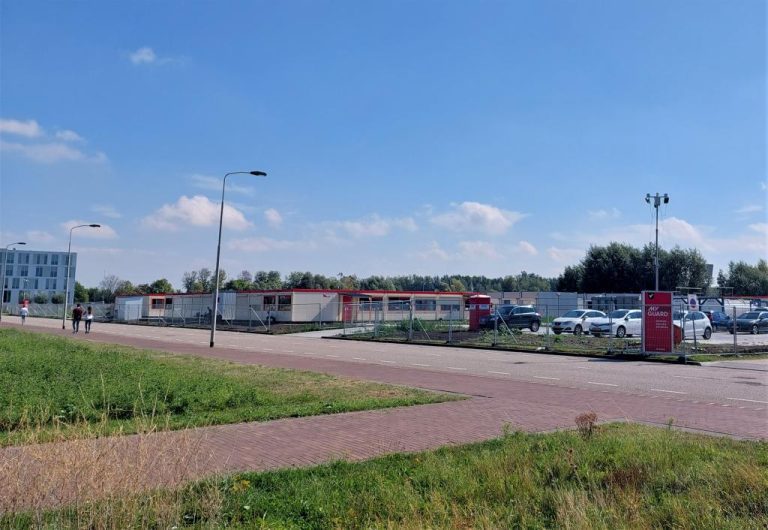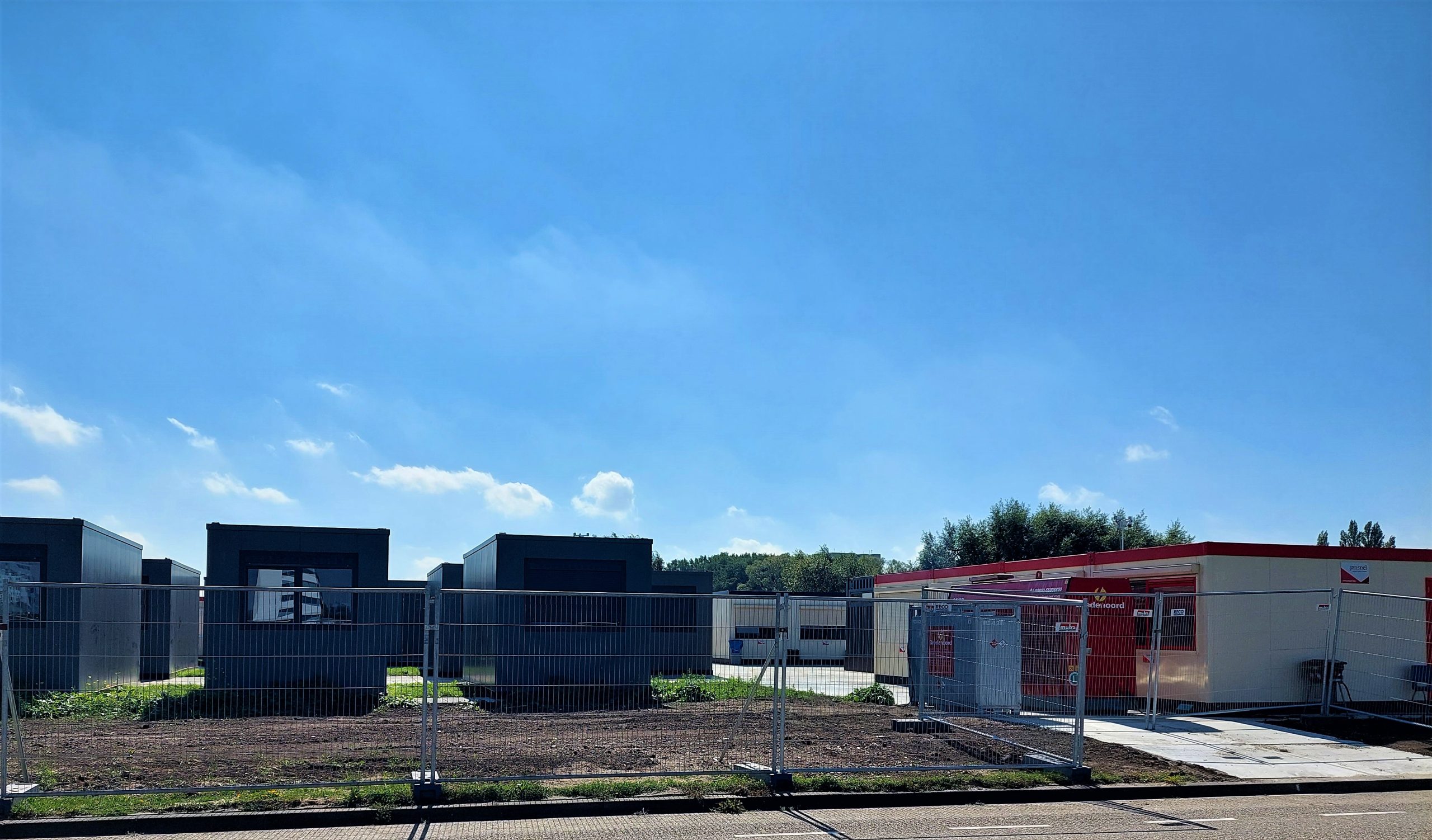The first 50 of a total of 220 asylum seekers arrived on 3 September in the emergency shelter on the TU Delft campus. How do they live there and how long can they stay?
A few of the mobile units at the emergency shelter. (Photos: Marjolein van der Veldt)
The Central Agency for the Reception of Asylum Seekers (COA) has far too few reception centres. The current reception centres are overflowing and there have been reception problems at the main application centre in Ter Apel. People have had to sleep in chairs, tents or outdoors. All the municipalities in the Netherlands have been requested to quickly create more temporary reception centres for asylum seekers. Various municipalities jumped to help, including Delft. On Saturday 3 September, the municipality welcomed the first 50 of a total of 220 asylum seekers in a temporary shelter on the TU Delft campus.
1. Where is the reception centre?
The temporary emergency shelter was built in the southern part of the campus. This is south of the Heertjeslaan and next to Exact’s, the software company, building.

Enclosed by fences is the entrance of the emergency shelter. On the left is software company Exact.
Mobile units will offer housing to 220 people. The spaces have two bunkbeds, four lockers, and a table and chairs. There is also a recreation space, two sanitary blocks, a reception and a kitchen so that residents can prepare their own meals.
2. Who will live there?
People of varying ages and nationalities, adults and children who arrived here alone, and families that are applying for asylum in the Netherlands. The composition of asylum seekers changes constantly so it is impossible to say who will come to Delft in advance. In recent months, the COA has seen an increase in numbers from countries such as Syria, Afghanistan, Yemen, Turkey and Eritrea.
3. The emergency shelter was ready on 25 July. Why has it taken more than a month for the first residents to arrive?
While the last safety checks for the location were underway, legionella bacteria were found in the water pipes of the units. The water supply was thus unusable. The COA installed temporary water tanks which are being used for both drinking water and sanitation. The COA and the owner of the water pipes are working on finding the source of the bacteria. As soon as no more legionella bacteria are found, the original water supply can be turned on again.
4. Delft had said that it did not have space for asylum seekers, did it not?
In April, the news broadcaster the NOS (in Dutch) reported that Delft had not given shelter to asylum seekers for 12 years. At the time, the municipality said that that was because ‘there was no suitable space’. One month later, Lennart Harpe, Delft’s Alderman for integration, says that he wants to take his social responsibility. “Delft is keen to help find a solution to the critical situation in Ter Apel.” Mayor Marja van Bijsterveldt also announced that the asylum seekers are ‘very welcome’ in Delft.
5. How long will the asylum seekers stay in Delft?
The emergency shelter on campus will be for a period of five months, starting on the day of the opening of the centre (September 3). The residents will in any case stay in Delft until their asylum application is being processed. After that they will move to a regular asylum seekers’ centre somewhere in the Netherlands.
6. Can the location be used for longer?
In principle, no, stated a Municipality spokesperson. “By providing temporary emergency shelter, the Municipality is meeting the urgent request of the COA to give shelter to 200 asylum seekers for a period of five months. If the COA issues an appeal to Delft again, the Municipal Council of the Mayor and the Aldermen will review the request.”
7. Can the location be used for temporary student accommodation when it is vacated?
Both the location and the mobile units will not be used for student accommodation later on. While the Municipality of Delft and TU Delft are discussing building temporary student housing on Campus Zuid, this is completely unrelated to the emergency shelter.
8. I would like to help. How can I sign up as a volunteer?
Do you want to help asylum seekers in building up their new lives? Then look at the vacancies on the COA’s website.
Do you want to donate goods? As the residents are recommended to go to secondhand shops to furnish their temporary residences, you are advised to bring furniture and other household goods to a local secondhand shop. To donate bicycles or equipment for the recreation space, contact the reception centre itself.
Do you have a question or comment about this article?
m.vanderveldt@tudelft.nl


Comments are closed.